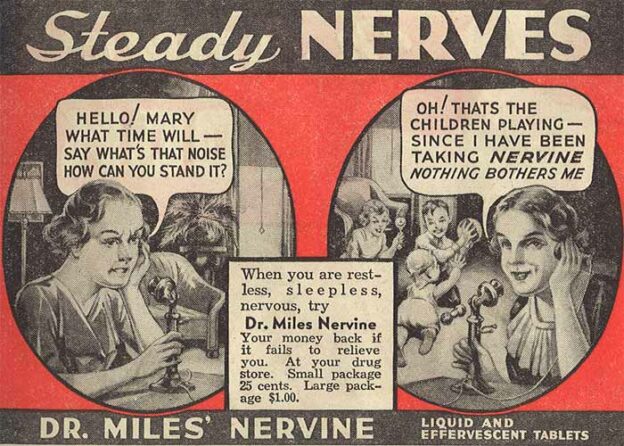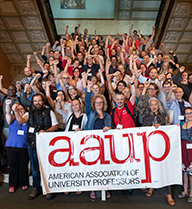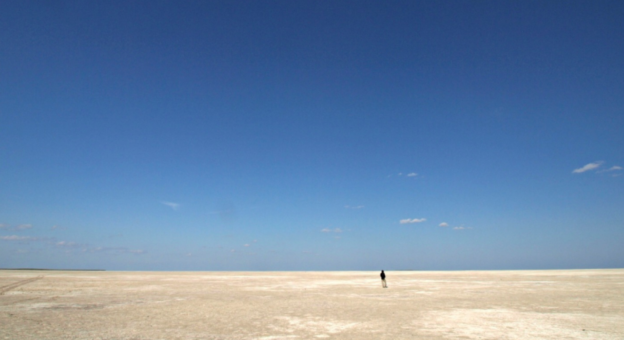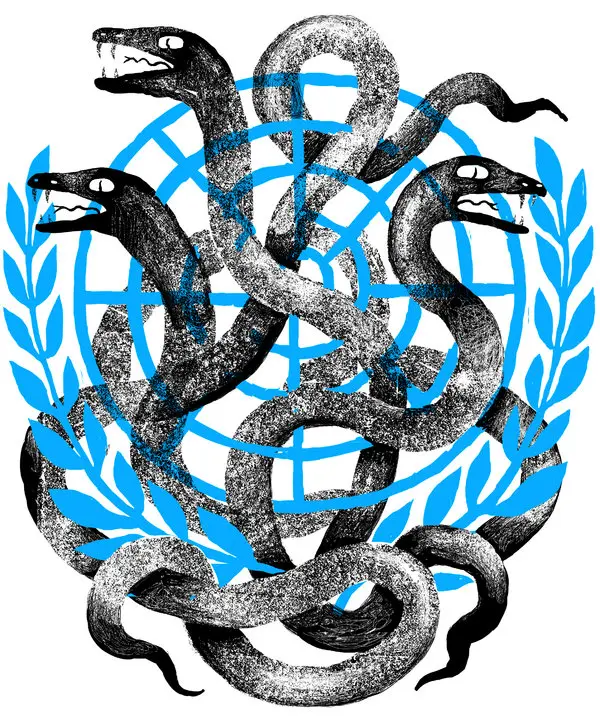| Have you heard of Perkycet®️? No? Well read all about it, and about drug ads, here. |


| Have you heard of Perkycet®️? No? Well read all about it, and about drug ads, here. |

For once, something positive about Israel has been served up by The New York Times, albeit unintentionally. What’s more, Al Jazeera spoke the truth.
Moshiach’s arrival seems imminent.
To read about those media’s accomplishments, please click here.

What do you think represents an “egregious threat to bedrock principles of academic freedom”?
The kidnapping and gagging of a professor? An administrator’s cancellation of the professor’s class? . A warning that he’d be fired unless he taught a certain point of view? Three strikes, you’re out.
To see the answer, click here.

Shepherds were abhorrent to ancient Egyptians, Yosef tells his brothers, as he relates what they should tell Par’oh in order to reserve the area of Goshen for his immigrating family (Beraishis 46:34). We find this in Mikeitz as well (43:32; see Rashi and Onkelos there)
Some commentaries understand that as indicating that the Egyptians protected livestock and shunned the consumption of meat. Ibn Ezra writes that the Egyptians were “like the people of India today, who don’t consume anything that comes from a sensile animal.”
Pardes Yosef (Rabbi Yosef Patzanovski) references the Ibn Ezra and explains that the ancient Egyptians considered the slaughter of an animal to be equivalent to the murder of a human being.
Although far distant in both time and place from ancient Egypt and India, some people in the Western Hemisphere today have come to embrace the notion that the sentience of animals renders them essentially no different from humans.
To be sure, seeking to prevent needless pain to non-human creatures is entirely in keeping with the Jewish mesorah, the source of enlightened society’s moral code. But those activists’ convictions go far beyond protecting animals from pain; they seek to muddle the fundamental distinction between the animal world and the human. A distinction that is all too important in our day, for instance, when it comes to issues pertinent to the beginning or end of life, or moral behavior.
A book that focuses on “the exploitation and slaughter of animals” compares animal farming to Nazi concentration camps. Its obscene title: “Eternal Treblinka.” Similarly obscene was the lament by People for the Ethical Treatment of Animals founder Ingrid Newkirk that “Six million Jews died in concentration camps, but six billion broiler chickens will die this year in slaughterhouses.”
But even average citizens today can slip onto the human-animal equivalency slope. American households with pets spend more than $60 billion on their care each year. People give dogs birthday presents and have their portraits taken. Such things might seem benign but, according to one study, many Americans grow more concerned when they see a dog in pain than when they see an adult human suffering.
We who have been gifted with the Torah, as well as all people who are the product of societies influenced by Torah truths, consider the difference between animals and human beings to be sacrosanct.
It is incumbent on us to try to keep larger society from blurring that distinction.
© 2024 Rabbi Avi Shafran

Imagine finding yourself in a desolate place and spying a lone figure in the distance coming toward you. Your apprehension, even nervousness, would be understandable. But then, when he comes closer and you see that it’s a man with a long white beard, wearing a hat, kapoteh and tallis, you’d breathe a sigh of relief. Until he suddenly attacks you, gets you in a headlock and bends your arm painfully behind your back.
The angel that confronted Yaakov when our forefather re-crossed Nachal Yabok to retrieve some small items looked, according to one opinion, “like a talmid chacham” [Chullin 91a].
The most straightforward takeaway from that contention is that one cannot rely on the appearance of a person as being reflective of his essence. That’s an important lesson, as it happens, for all of us, and to be imparted to our young. Honoring someone who looks honorable is fine, but trusting him requires more than that.
But there’s a broader, historical message in that image of a faux talmid chacham too.
From the 19th century Wissenschaft des Judentums movement to the Reform and Conservative ones to the Jewish nationalism that sought to replace Torah with a Jewish state to “Open Orthodoxy,” there have been many efforts to distort the essence of Judaism – dedication to the Creator and His laws for us.
They have all sought to don conceptual garb proclaiming their “Jewish” bona fides. But they have all been revealed to be no less masqueraders than the sar of Esav wrapped in a tallis.
© 2024 Rabbi Avi Shafran

It’s considered uncouth, or worse, these days to assign any sort of “national character” to peoples of different ethnic or geographical backgrounds. And we are well advised to not assume anything about any individual – say, to assume that a German will be punctual or a Canadian, polite. But meticulousness is a prominent aspect of German society; and civility, a notable Canadian middah. Anthropological and sociological cultural norms exist.
Yishmael is commonly perceived as the progenitor of some Arab peoples, an association that would seem to dovetail disturbingly with how Avraham’s first son is characterized in the parsha, as a “pereh adam,” an “unbridled man” given to violence (see Rashi, Beraishis 21:9), someone whose “hand is against all others” and, as a result, causes “all others’ hands to be against him”(ibid 16:12).
The striking savagery wrought by Arab terrorists, from the Hebron massacre of 1929 to October 7, 2023 (and countless attacks on innocents between those events) lend credence to the idea that Yishmael’s middah persists in our world.
Strikingly, the Muqaddimah, a famous 14th century text by Arab historian Ibn Khaldun, seems to agree with the Torah’s characterization of Yishmael. Ibn Khaldun engages in blunt judgments about various populations, including his fellow Arabs, who, he writes, are the most savage of people; he compares them to wild, predatory animals.
The notion that violence is tolerated in – or even embraced by – parts of the Arab world, more than in other societies, is evoked by the flags of some modern Arab states. That of the largest one, Saudi Arabia, features a sword (and the country’s official emblem, two crossed ones). Oman’s and Hamas’ flags also prominently feature swords. Hands clenching AK-47s are on the Fatah movement’s flag, which also includes the image of a hand grenade and is graced with a blood-red Arabic text that probably (just guessing here) doesn’t read “give peace a chance”.
The Palestinian Authority’s “national anthem,” called “Fida’i,” begins, “Warrior, warrior, warrior” and ends “I will live as a warrior, I will remain a warrior, I will die as a warrior…”
No individual Arab should ever be assumed to be a violent person, of course. But a proclivity for violence seems to be part of Arab culture, a tragic reality noted not only by Ibn Khaldun but presaged by, lihavdil, the Torah.
© 2024 Rabbi Avi Shafran

You can read why here.

In the U.S., offering, giving, receiving, or soliciting something of value in exchange for influencing a judge’s or other public official’s actions is illegal (U.S. Code, Title 18, Section 201).
The Torah’s prohibition of bribery differs in two surprising ways. Firstly, the prohibition is on a judge alone, for taking a bribe, not on a litigant offering one. (Though, in the latter case, the offerer is nevertheless responsible for “putting an obstacle before the blind” – causing the judge to sin – Shulchan Aruch, Choshen Mishpat 9:1)
And, secondly, a judge is forbidden to take a bribe not only to influence his decision in a particular direction but even to execute his judgment properly. Even, according to the Derisha (ibid), if both litigants offer the same bribe for that purpose alone.
It seems that the Torah’s law against bribery isn’t aimed at preventing quid pro quo per se (forgive all the Latin). It’s not, in other words, a law about wrongdoers but, rather, about maintaining a purity of justice. Anything superfluous at all, whether or not it actually affects a verdict, that is injected into the holy mission of judging a case contaminates the enterprise.
Because a Jewish court isn’t a simple adjudication of a dispute between individuals; it is the performance of a holy act.
That might seem a slight distinction, but it really isn’t. So momentous is the undertaking to judge a case that the Talmud says it is as if the judge has partnered with Hashem in the act of Creation (Shabbos 10a). And that a judge who misjudges “causes the Divine Presence to withdraw from Klal Yisrael” (Sanhedrin 7a).
Which is why the Shulchan Aruch considers a compromise reached between litigants to be preferable to an actual court hearing and law-based ruling (Choshen Mishpat 12). Judgment, it seems, is so daunting, so charged an endeavor, it is best resorted to only when necessary. The stakes, no matter how small the financial impact may be to the litigants, are just too high.
© 2024 Rabbi Avi Shafran

Killing takes a toll – on the killed, of course; that’s pretty obvious. But also on the killers.
That is something that the Ohr Hachaim introduces in his commentary on the pasuk “And He will give you mercy and have mercy upon you” (Devarim, 13:18).
That “give you mercy” is his focus. He writes:
“This act of killing [here of the idolaters of an ir hanidachas] creates a natural cruelty in the heart of a person.”
He continues by referring to what “we are told by the sect of Yishmaelim who murder at the command of the leader, that they experience a great euphoria when they kill a man, and the natural feeling of pity is extinguished in them…”
Therefore, he explains, “Hashem assures the Jews that [after their commanded act of killing], their innate feelings of mercy… will be returned to them anew” despite their having been weakened through the act of killing.
And, further, that they will thereby be granted Heavenly mercy themselves, since “Hashem has mercy only on the merciful.”
Modern psychiatry recognizes something called “perpetrator trauma,” a presentation of post-traumatic stress disorder (PTSD) symptoms caused by an act or acts of killing.
But what the Ohr Hachaim is expounding upon is a different upshot of perpetrating violence: the erosion of the natural human instinct of mercy.
And his report about not only the post-murder desensitization of assassins (the word “assassin,” as it happens, derived from an Arabic name for the reputedly murderous Nizari Ismaili sect) but of their being enthralled by taking lives resonates all too strongly today, when we have seen Yishmaeli murderers exulting after killing men, women and children. Even the mere imagining of murdering Jews is enough to enrapture some, as they joyfully and mindlessly chant their hope to rid the Holy Land of Jews “from the river to the sea.”
© 2024 Rabbi Avi Shafran

The omission of any mention of Israeli victims of terrorism from an International Day of Remembrance of and Tribute to the Victims of Terrorism display at the visitors’ hall of United Nations headquarters is nothing short of despicable.
The U.N. informs us that “Acts of terrorism propagating a wide-range of hateful ideologies continue to injure, harm and kill thousands of innocent people each year,” and that the international body “has an important role in supporting Member States to implement the UN Global Counter-Terrorism Strategy by standing in solidarity and providing support to victims of terrorism.”
And, indeed, the visitors’ welcome area’s display of large photographs of such victims includes tributes to victims of 9/11 and of terrorist attacks in Boston, Indonesia and Kenya, among other places.
Conspicuously missing, though, is any mention of the countless Jewish victims of Islamist terror over so many years. And this, less than a year since the October 7 Hamas attack on Israelis, the most deadly attack on Jews since the Holocaust.
Many have long judged the U.N. as a hypocritical, corrupt and useless institution. Ample evidence for that contention is displayed at the U.N. today.